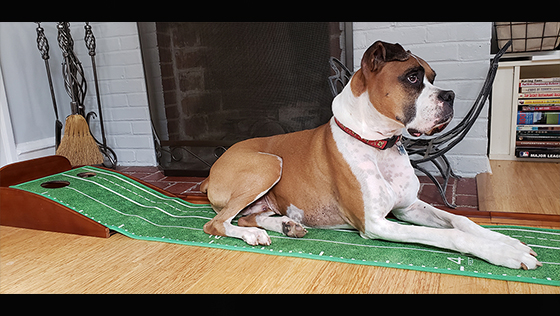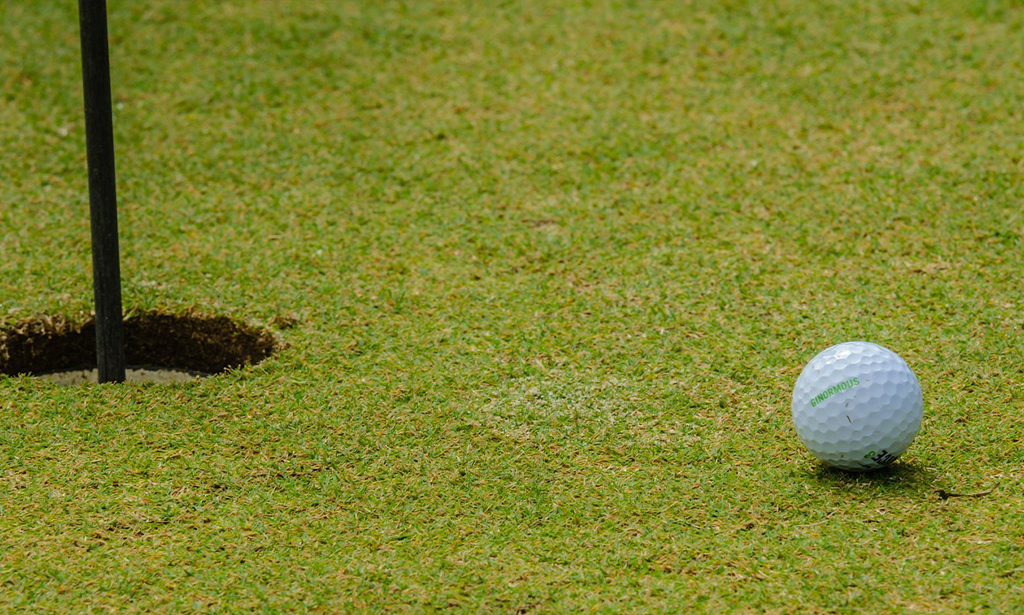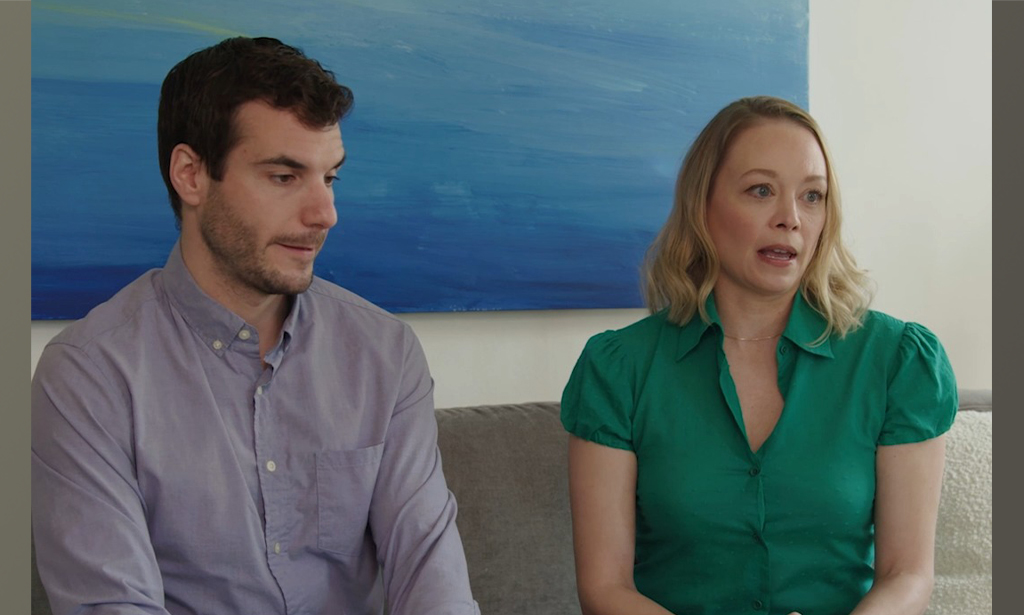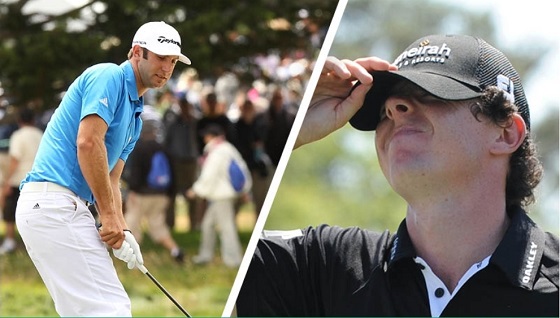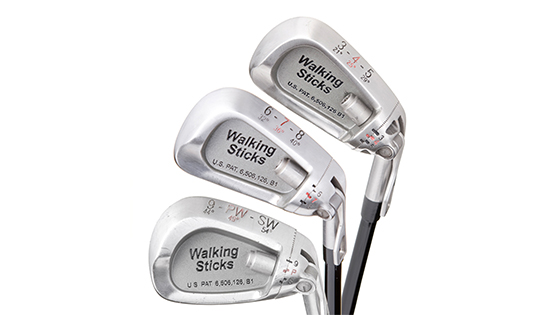PGA News
Pro Golfer Admits to Cheating in Event, Calls It His ‘Biggest Mistake’
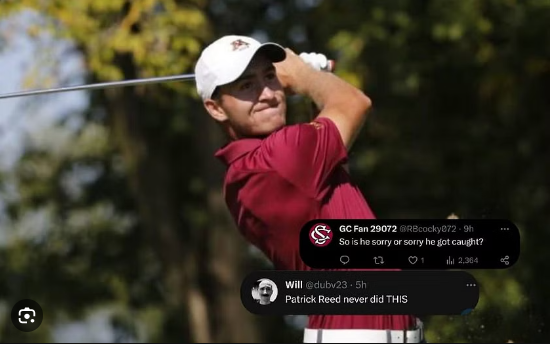
A scoring controversy broke out at a PGA Tour Canada event in Ottawa last Friday when a 28-year-old pro was questioned by his playing partners about changing his score on the final hole of the second round.
According to Ryan French, who runs the MondayQInfo Twitter account, Justin Doeden, had a double-bogey 7 on the 18th hole but then allegedly changed his score to par before handing in his card. Here is how it happened:
The report said Doeden was 3-under par on the leaderboard, but his card was signed as having shot a seven on the 18th hole. It would have put Doeden at 1-under par, and he would have missed the cut with that score.
Doeden hit his second shot on the 18th hole into the water. He was hit with a penalty stroke and started on his fourth shot. He completed the hole in seven strokes, but his scorecard reportedly showed a five instead of a seven.
According to Monday Q Info, Doeden’s playing partners saw the final score and alerted tournament officials. They reportedly looked at the card and noticed the seven had been erased and replaced with a five.
That score would have helped him squeak inside the cut. He later withdrew from the event after an investigation began.
Doeden, who played collegiately at Minnesota and has played in one PGA Tour event in his career, admitted Monday that he did in fact cheat:
It will be interesting to see what type of punishment, if any, is handed out following Doeden’s admission.
I for one am proud of him. Not for cheating, hell we all make mistakes. Cheating in Golf, one of the most sacred of all sports, however, is a HUGE no-no. But, as I tell my kids, I will always be more upset if you lie to me about something than the thing itself. It took a lot of courage to come clean. Kudos to Justin for doing the right thing in the end and letting whatever punishment he faces fall into place. That took guts. I hope he learns a valuable lesson from this mishap.
NOW – It’s your turn, my loyal readers, let me ask …
Have you ever cheated on your scorecard?
Let’s hear some stories of when you or your buddy maybe “forgot” about a stroke or two – come on we all golf with “That Guy” and if you don’t know who he is…it may be you! Just Sayin’.
You may not know this but MANY of your favorite PGA pro golfers have bent the rules or used them in their favor. [WATCH THIS ???] and see if your favorite golfer made the list – Uh Em – Patrick Reed…
The confessional is open: AND I’ll start – YES, I admit I have – Not really, but I have. I have taken a mulligan on a hole well into a round and played that ball as my first. I then posted that round to my GHIN. So – in effect, I have 100% cheated before.
There I said it. my shoulders feel lighter. Comment below and repent to the golfing gods your on-course infractions. You will feel better my son.
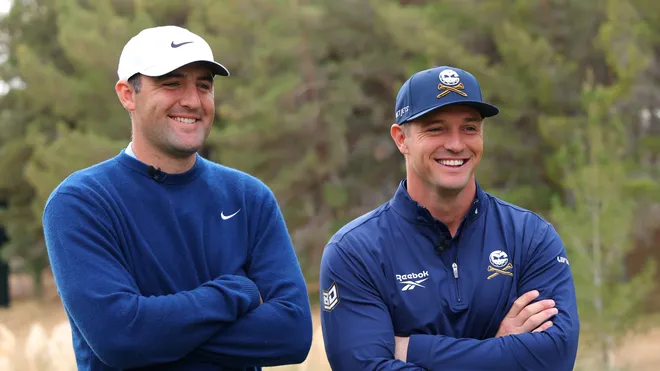
In the ever-evolving world of professional golf, few rivalries capture the contrast of style and substance like Scottie Scheffler versus Bryson DeChambeau. While both have claimed massive wins and global headlines, their paths to success and how they play the game couldn’t be more different. Here’s a deep dive into their strengths, weaknesses, career highlights, and what makes each stand out in today’s competitive landscape.
Backgrounds and Styles
Scottie Scheffler
The Dallas-born Scheffler embodies a classic, workmanlike approach to golf. Known for his calm demeanor, efficient swing, and remarkable consistency, Scheffler has risen to the top of the world rankings with little flash but elite-level substance. His game is built on balance, precision, and one of the most reliable tee-to-green performances the sport has seen in years.
Bryson DeChambeau
Nicknamed “The Scientist,” DeChambeau has taken an analytical and experimental approach to the game. He’s redefined physical fitness in golf, adding serious bulk to increase driving distance. Known for using single-length irons and obsessing over launch angles and biomechanics, Bryson is a true disruptor. His aggressive style polarizes fans and analysts, but it undeniably commands attention.
Strengths
Scheffler
- Tee-to-Green Excellence: Leads the PGA Tour in strokes gained tee-to-green.
- Consistency: Rarely misses cuts and often finishes in the top 10.
- Short Game: Exceptional touch and creativity around the greens.
- Mental Game: Composed under pressure; rarely rattled.
DeChambeau
- Driving Distance: One of the longest hitters in the game; regularly over 320 yards.
- Innovation: Willing to take unconventional approaches for marginal gains.
- Power Play: Dominates par 5s and shortens long courses with his length.
- Confidence: Self-belief and boldness to attempt shots most won’t.
Weaknesses
Scheffler
- Putting: Historically his weakest stat, though he’s shown improvement.
- Media Presence: More reserved; lacks the big personality that moves the needle for fans and brands.
DeChambeau
- Inconsistency: Can be volatile—either dominating or struggling.
- Course Management: Aggressiveness sometimes leads to trouble.
- Injury Risk: His physical transformation has come with some health setbacks.
Biggest Wins
Scottie Scheffler
- The Masters (2022)
- The Players Championship (2023)
- Multiple WGC and Signature Events
As of 2025, Scheffler has claimed over 10 PGA Tour titles and continues to rack up top finishes in majors and elite events.
Bryson DeChambeau
- U.S. Open (2020)
- Arnold Palmer Invitational (2021)
- Multiple LIV Golf Wins
DeChambeau made headlines by joining LIV Golf, where he’s claimed multiple high-stakes victories, including a team championship and a dominant individual LIV win in 2023.
Career Earnings
Scheffler:
Over $50 million in PGA Tour earnings alone, with additional income from endorsements like Nike, TaylorMade, and Rolex.
DeChambeau:
Estimated $60–$80 million, largely boosted by a reported $100+ million LIV Golf contract and additional prize money. His endorsements have shifted due to his controversial LIV move, but he remains a marketable figure.
Similarities
Both are U.S.-born and played collegiate golf (Scheffler at Texas, DeChambeau at SMU).
Each has reached the top 10 in the Official World Golf Ranking.
Both have won majors and represented the U.S. in Ryder Cups.
Each has shown a willingness to be different—Scheffler through quiet dominance, DeChambeau through outspoken innovation.
Key Differences
| Trait | Scottie Scheffler | Bryson DeChambeau |
|---|---|---|
| Playing Style | Traditional, consistent | Aggressive, experimental |
| Physical Transformation | Minimal | Extreme (bulk and strength) |
| Equipment | Standard setup | Single-length irons |
| Public Persona | Reserved, grounded | Outspoken, controversial |
| Tour Affiliation | PGA Tour loyalist | LIV Golf convert |
Final Thoughts
Scheffler and DeChambeau represent two archetypes in modern golf: one a quiet technician, the other a showman scientist. Whether you admire Scottie’s stoic efficiency or Bryson’s radical reinvention, both are changing the game in their own way. And in a sport where individuality meets performance, there’s room—and demand—for both.
Blog
How to control your anger on the golf course
Golf is a game of precision, patience—and sometimes, pure frustration. Here’s how to manage your emotions when the pressure builds, and what we can all learn from high-profile blowups like Adam Hadwin’s sprinkler-smashing moment.
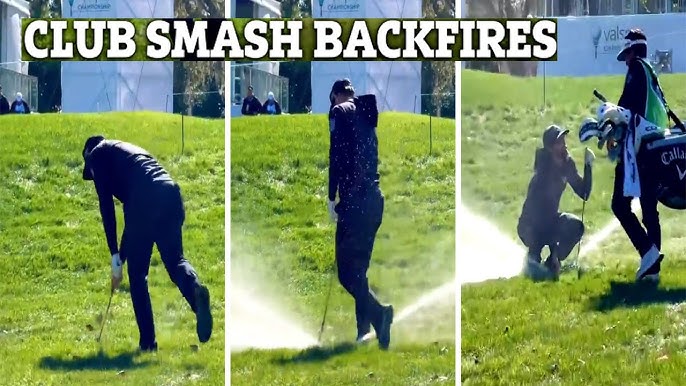
Golf and Anger: A Tough Combo on the Course
Golf is often praised as a game of mental toughness. Yet even the most seasoned professionals are not immune to letting emotions get the best of them. Just ask Adam Hadwin, who, during the 2025 Valspar Championship, made headlines after smashing a sprinkler head in frustration during his round at Innisbrook.
The moment—caught on camera—spread quickly across social media, sparking debates around sportsmanship, mental health, and the psychological toll of high-pressure competition. But while it’s easy to point fingers, the truth is: golf is hard. And controlling anger on the golf course is a skill many of us are still trying to master.
Why Golf Makes Us So Angry
Let’s be honest—golf can feel cruel. One minute you’re striping drives down the fairway, and the next, you’re chipping back and forth across a green like you’ve never held a club before. It’s a game that challenges both your skill and your patience.
The mental pressure in golf is unique:
- You’re often alone with your thoughts.
- There’s time to stew between shots.
- Every swing carries weight, especially in competition.
- And most golfers are their own worst critics.
For pros like Hadwin, there’s the added layer of TV cameras, fans, sponsors, and expectations. But even for weekend warriors, the emotional stakes feel real.
The Consequences of Losing Control
Lashing out in anger might feel good in the moment—but it rarely helps your game. In fact, it often leads to a downward spiral:
- Loss of focus
- Tension in the swing
- Poor decision-making
- Embarrassment or regret afterward
Hadwin’s sprinkler moment is a prime example of how pressure can boil over—even for seasoned tour pros. But it’s also a reminder that anger, if left unchecked, can sabotage your performance and your reputation.
How to Manage Anger on the Golf Course
So what can you do when the frustration starts to build? Here are proven anger management tips for golfers that can help you stay calm, focused, and in control.
1. Recognize the Warning Signs
Before you snap, your body often sends subtle signals—tight chest, clenched jaw, shallow breathing. Learn to recognize these cues so you can catch yourself early.
2. Have a Reset Routine
Pros like Jon Rahm and Collin Morikawa use breathing exercises, grounding techniques, or visual routines between shots. Try:
- Taking a deep breath through your nose and exhaling slowly.
- Looking at the treetops or sky for a few seconds to reset your focus.
- Repeating a calming phrase like “next shot” or “stay loose.”
3. Walk It Off
Walking between shots gives you a chance to cool down—literally and mentally. Use that time to reset and detach emotionally from the last swing.
4. Use Humor or Self-Talk
Sometimes, laughter really is the best medicine. Making a light comment or reminding yourself it’s just a game can diffuse tension and help you stay grounded.
5. Set Process Goals, Not Outcome Goals
Instead of obsessing over score, focus on things you can control—like tempo, alignment, or course management. This shift in mindset can reduce frustration when things don’t go perfectly.
6. Keep Perspective
Ask yourself: “Will I remember this shot a week from now?” If not, it’s probably not worth the outburst. Golf is a lifelong game—one bad hole doesn’t define you.
Golf Is an Emotional Game—But It’s Also a Teacher
Every round presents an opportunity—not just to shoot a lower score, but to practice patience, resilience, and grace under pressure. Yes, moments like Adam Hadwin’s sprinkler smash are dramatic. But they’re also human.
The key isn’t to avoid frustration altogether—it’s learning how to respond to it.
So next time you chunk a wedge or lip out a birdie putt, take a breath. Channel your inner pro—not the angry one—and move on to the next shot with purpose.
Because in golf, as in life, how you handle the tough moments says more than any scorecard ever could.

For amateur golfers seeking to enhance their game, stay updated on golf news, or simply enjoy engaging discussions, podcasts offer a convenient and informative medium. Based on recommendations from reputable sources and golf communities, here are some top golf podcasts tailored for non-professional enthusiasts:
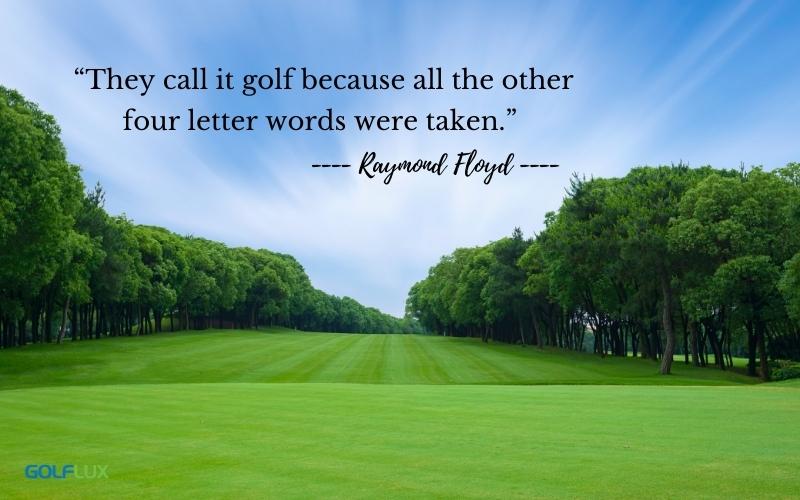
Hosted by CBS commentator Mark Immelman, this podcast features weekly interviews with instructors, coaches, players, and other golf experts. With over 700 episodes, it provides in-depth discussions aimed at helping golfers improve their skills.
A favorite among golf enthusiasts, No Laying Up offers a mix of tour coverage, player interviews, and discussions on various golf topics. It’s known for its insightful commentary and engaging content.
Featuring European Tour player Eddie Pepperell, this podcast provides a blend of tour insights and personal experiences, offering listeners a unique perspective on the professional golf scene.
This podcast chronicles the journey of two amateur golfers striving to achieve a scratch handicap. It’s relatable for many non-professional players and offers both entertainment and insights into the challenges of improving one’s game.
Hosted by golf coach Mark Crossfield, this podcast delves into various aspects of the game, from equipment reviews to swing techniques, providing practical advice for amateur golfers.
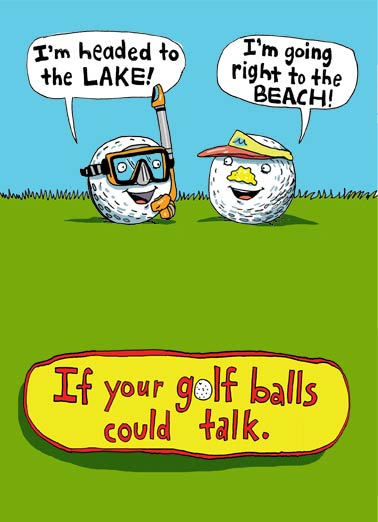
Hosted by Rick Shiels, a former golf teaching professional from Bolton, this podcast covers a wide range of topics, including equipment reviews, interviews with golf personalities, and discussions on current events in the golf world.
Hosted by popular golfer Andrew “Beef” Johnston and comedian John Robins, this podcast offers a light-hearted take on the game, discussing various golf topics and sharing personal anecdotes.
This podcast explores the highs and lows of being a golf enthusiast, sharing stories and experiences that many amateur golfers can relate to.
Featuring instructors Mark Crossfield, Greg Chalmers, and Lou Stagner, this podcast discusses various aspects of the game, offering insights and tips to help golfers improve.
Hosted by Peter Finch, this podcast features discussions with various guests, covering a wide range of golf-related topics, from equipment to personal experiences.
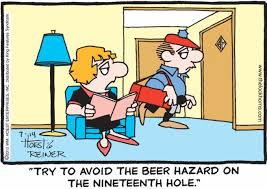
These podcasts offer a variety of content tailored to amateur golfers, from instructional advice to entertaining discussions. Whether you’re looking to improve your game or simply enjoy golf-related conversations, there’s likely a podcast on this list that suits your interests.
-

 Product Review6 years ago
Product Review6 years agoThe Perfect Practice Putting Mat Review by Jason Tenzer
-

 Blog4 years ago
Blog4 years agoLoophole Rule Offers PGA Tour Pros a Mulligan
-

 Blog4 years ago
Blog4 years ago2021 Buyer’s Guide: The Top 10 Value Golf Balls For Distance & Feel
-

 Blog4 years ago
Blog4 years agoGolf Marriage Counselor
-

 Blog6 years ago
Blog6 years ago9 Biggest Chokes Of The Past Decade
-

 Product Review6 years ago
Product Review6 years agoTHE ADJUSTABLE IRONS: WALKING STICKS GOLF CLUBS
-

 Blog4 years ago
Blog4 years agoWhat Your Golf Clubs Say About You
-

 Equipment6 years ago
Equipment6 years agoOHK Sports Interview by Jason Tenzer










